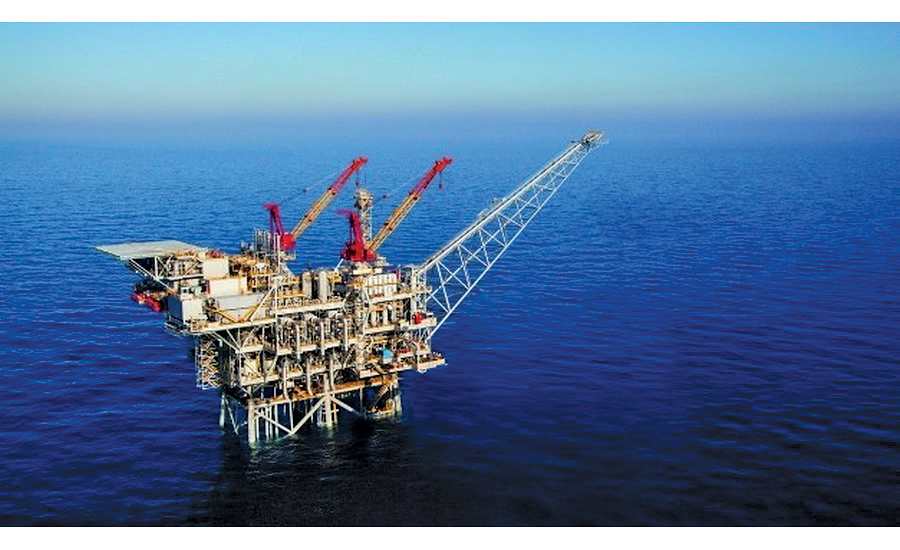Israel Court Questions Legality Of US-Led Offshore Gas DeaI

Development of huge gas field next to existing Tamar site now faces new delays.
WIKIPEDIA
The largest-ever infrastructure investment in Israel’s history—possibly $10 billion—has been halted and could face delay of at least a year following a March 27 domestic court ruling that rejected the framework for the U.S.-Israeli developers of the Leviathan offshore gas field. Its estimated 22 trillion cu ft of natural gas was seen as key to Israeli energy self-sufficiency and to regional gas export deals being negotiated.
Israel’s high court rejected a controversial government clause, adopted last year, that granted the developers, Houston-based Noble Energy Inc. and its Israeli partner Delek Group, a 10-year guarantee of regulatory stability. Judges gave the parties one year to come up with an alternative arrangement. Environmental and other opponents brought the case to overturn the framework. The decision is “disappointing,” said Noble Energy. “Development of a project of this magnitude, where large investments are to be made over multiple years, requires Israel to provide a stable investment climate,” noted CEO David Stover in a statement, adding that it was up to the government to find a solution quickly.
Developing the farther-offshore Leviathan field has been estimated to cost $5 billion to $6 billion. The firms now are pumping gas from the smaller Tamar field, although there is criticism of the deal as energy prices have crashed. The massive infrastructure investments include a network of pipelines and receiving stations to deliver the gas to Israeli and potential export customers in Egypt, Jordan, Turkey and Europe.
Chen Herzog, chief economist and energy expert at BDO Consulting, said that, even in the best-case scenario, production will not begin before 2020, at the earliest, and possibly much later. “Israel will be faced with a shortage of gas supplies beginning in 2019 or possibly earlier,” he predicts. Israel Energy and Water Minister Yuval Steinitz counters that the controversy can be resolved within a matter of months. In February, the Leviathan partners presented a plan to develop the field by the end of 2019. The ruling “places a question mark over the future of gas exports,” said one Tel Aviv investment banker.

